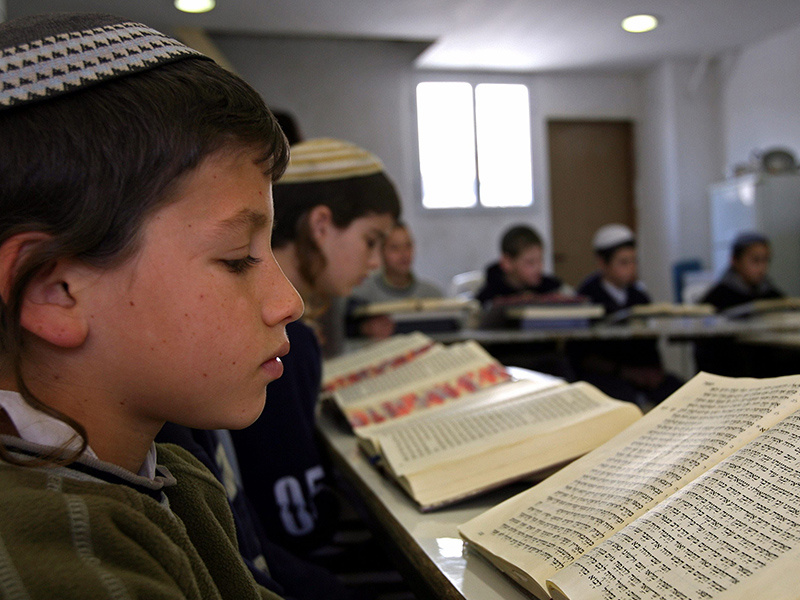Recently, I participated in a meeting at which issues important to the Jewish community were being delineated and prioritized. Close to two-dozen organizations, reflecting the spectrum of local Jewish life, were represented. The meeting’s chair contended that one of the most major concerns for the Jewish community is a crisis in Jewish education. He backed up his claim with the alarming statistic that day school attendance has declined 24 per cent in the past 10 years.
The chair prefaced this revelation by saying, matter-of-factly, that it applied only to non-Orthodox schools. This is not the first time I’ve encountered such a disclaimer. A few years ago, I read a study about the state of Jewish education in North America; a footnote early on in the publication specified that the mostly negative findings didn’t apply to schools run under Orthodox auspices.
It would not be in the realm of fantasy to imagine someone at the meeting turning to one of the handful of kippah-clad men (the one woman wearing such a head covering was not Orthodox) and asking how our community has managed to buck the trends and operate schools that are thriving. Since that didn’t happen, perhaps I can use this forum to offer some unsolicited insights.
Let’s be clear: the Orthodox community isn’t lacking in issues relating to Jewish education. Tuition affordability, for example, is a multi-denominational concern. Nevertheless, the steady rise in enrolment and high retention rates at Orthodox schools should make everyone curious about what we’re doing right.
READ: UNDERSTANDING THE BEIT DIN’S STANDARDS
There are a number of reasons why attendance at Orthodox schools has not fallen into a tail-spin. The quality of the athletic programs or science labs are not among them – in some right-wing Orthodox schools that are bursting at the seams, such resources are all but non-existent. Rather, I would suggest that the main explanation is the attitude of the parents who send their kids to these schools. They believe there is simply no choice in this area. To them, a Torah education is the most important gift they can give their children. It offers knowledge, values, traditions, spirituality and a means of developing a personal relationship with the Almighty. They would never dream of sending their children to a public or private school that couldn’t deliver all that.
While a minority of Orthodox families do not send their children to day school, the vast majority of parents are willing to do whatever it takes for their sons and daughters to have an intense Torah education. Some go without luxuries – or even necessities – in order to pay tuition. They would rather that their resources be used for their children to absorb a heritage that connects them with their parents and grandparents.
There was a time when this attitude was pervasive throughout other segments of the Jewish community, as well. Most parents would send their children to a supplementary Jewish school for one or more days a week. Shul membership was also taken for granted and unwavering support for Israel was considered a vital part of being a Diaspora Jew. This was especially so for those who had lived through the Holocaust or remembered what it was like to be a Jew before there was a Jewish state.
Back at the community meeting I attended, practical suggestions about how to deal with the crisis in Jewish education were put forward. The main one was finding funding to lower tuition rates. But it seems there also needs to be a change of attitude on the part of parents, so that they make important and difficult decisions in a way that will result in future generations of committed Jews, beginning with their own children. That way, no one will be left out.

